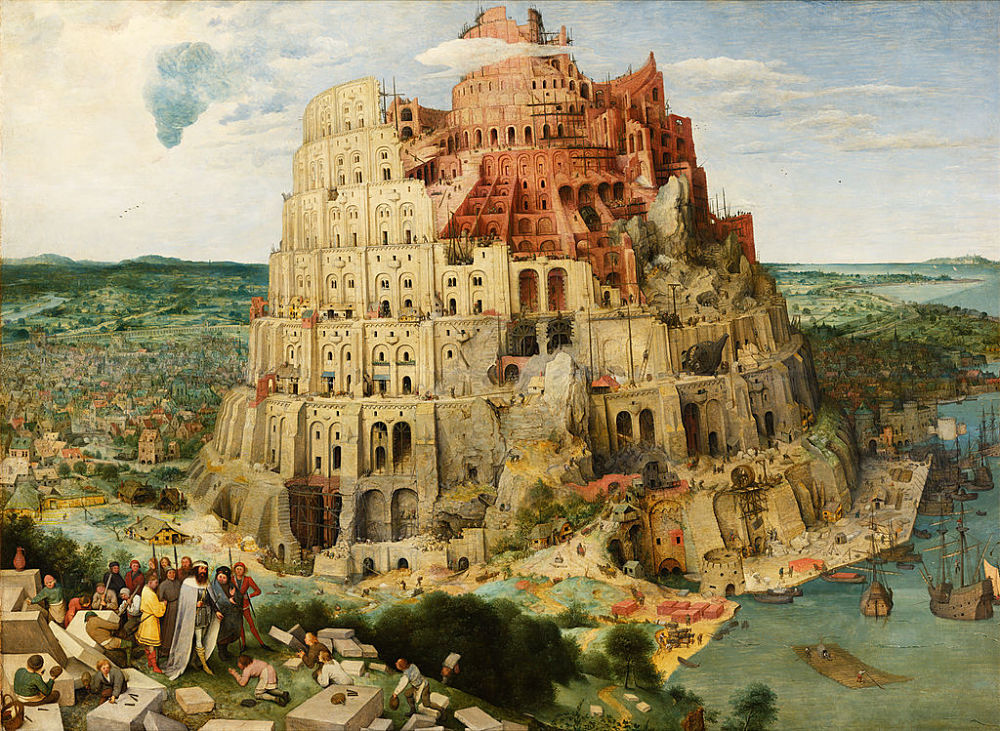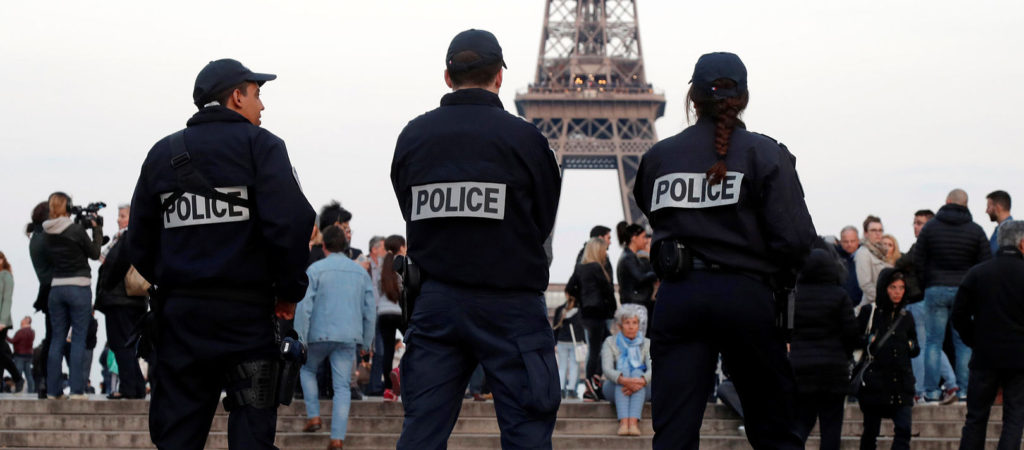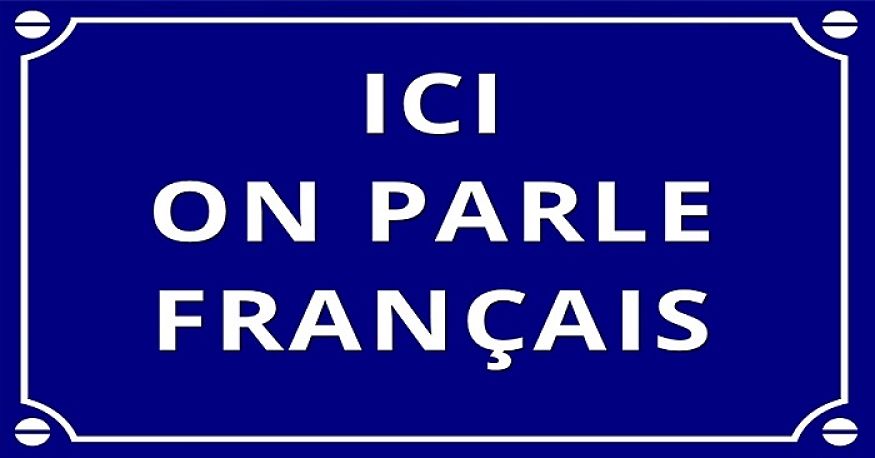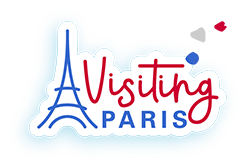Non-French-speaking tourists : don’t miss out on anything when visiting Paris
This post is also available in:
![]()
The fear of many non-French-speaking tourists is to make themselves understood when they are in France. However, the solution is within reach, without even having to learn French. We explain below the reasons for our optimism.
Foreign languages, the Tower of Babel complex and French language for non-French-speaking tourists
There are about 6900 languages in the world today. The French language is known to be quite difficult. It’s official: UNESCO has ranked the languages according to the difficulty to master them. Number 10: French! If it is relatively easy to learn for speakers of other Latin languages (Spanish, Italian…) on the other hand its strict grammar and its rules of pronunciation (silent letters, slurs…) make it a serious pitfall for those who try to learn it…

French is described as smooth, flowing, elegant, and aesthetically pleasing. With its unpronounceable “r”, nasal-sounding vowels such as “en”, “in” and “un”, and its melodious intonation, it sounds extremely musical to a foreign ear.
Here are the gourmet and erudite comments of Henriette Walter, professor emeritus of linguistics at the university. “In our language, we don’t have the necessity to stress a syllable, a part of the word, to make ourselves understood. We can modulate the word as we please. We can say to someone, ‘You’re really IM-possible’ or ‘imPOssible,’ and they’ll understand. And what effect does that have? That’s what makes it so lilting, pleasant, sensual, “sexy” as foreigners say. It charms people. Do other languages work like this? Yes. Basque, for example, is also what linguists call a “place-appropriate accentless” language. Vowels “soften”. French has at least eleven and up to sixteen, and Arabic only three.
This is also the reason why foreigners have the impression that French speaks very fast when this is not particularly the case. Indeed, there is no rhythm and “acoustic cues” defined by accents and consonants within words as in most other languages.
This language is therefore difficult to “reproduce” for people who did not start learning it in their early youth (3 to 5 years). It only takes one word or phrase to recognize that the speaker “wasn’t born here.”
But what does it matter as far as you are concerned? We’ve studied your problem as a non-French speaking tourist visiting Paris. We have listed below the solutions in order to sweep away your fears for good.
First, is it true that Parisians speak little or no English?
The English organization EF (Education First) published in 2020 the “English Proficiency Index” of the world’s countries (non-English speaking countries). France is at an average value, 28th out of the 100 nations studied and 23rd out of 34 European nations (the first 4 nations of the 100 studied being, in order, the Netherlands, Denmark, Finland, Sweden, and Norway). This means that France has largely caught up with its past, especially since the Parisians you will meet during your visit to Paris are much more used to speaking English than the inhabitants of “la France profonde”. In the recent past, 20% of French people spoke English and 40% were fluent in basic conversation. But this score has improved in recent years. Young adults, in particular, often study English at school and university and are more likely to understand you. This means that on a street in Paris, you will have more than a 50/50 chance of being able to communicate easily with a random passerby. Just for information: 15% of the English born population speaks a foreign language fluently.

Of course, the English spoken by a French person is not the same as that of a Briton, but it is usually sufficient to solve any “material” problems during your stay. Even if English is not your mother tongue, you will easily understand your French interlocutors.
Note from a British visitor to France: “It is less and less difficult to find French people who speak English with you, especially among the young. It’s true that the French are very attached to their language, but for those who can speak other languages, they do so willingly.”
Steve, British, businessman.
What about non-English and non-French speakers? France has been a country of high immigration for many years. This immigration started with the Italians (between the 2 world wars) then the Spanish (just before the 2nd world war), more recently the Eastern countries (from the former Soviet bloc), and the African countries. As a result, it will be possible to accidentally and quite easily come across a descendant of these migrants who can help you linguistically.
But by the way: on which occasions do you need to explain yourself and/or argue in French?
To verify this occurrence, let’s take the “events” you will “experience” from the moment you leave your home country to go to Paris if you are among non-French-speaking tourists:





- In the plane, whether it is from your country or French. The crew will be bi-lingual and English is always mandatory. So no problem for non-French-speaking tourists.
- On arrival at one of the Paris airports.
Everyone speaks at least English: border police, customs, shopkeepers, administrative services. All airports also have translators available in case of serious disputes. Here again, no problem. - Means of transport, cabs, metro, RER, buses, car reservations.
All documents available for consultation are at least bilingual French-English. The cab drivers speak the words and phrases “useful for their work” in English and sometimes in other languages. The RATP, which manages public transportation in Paris (Metro, RER, trains and buses) has an app written entirely in English that contains all the information you need to find your way to the most popular Parisian monuments (Next Stop Paris – RATP) - On the street.
A non-French-speaking tourists will never be alone lost. There will always be someone to help. If there are few passers-by, why not ask at the reception of nearby hotels, monuments, police stations, administrative offices, pharmacies, cafés, etc.? - If no one is able to help you, not even your GPS, you should turn to the good old method of the paper map.
There are many maps posted all over the city and especially at the entrance of the metro stations. You can also ask for free city or neighborhood maps (available in all major languages) at your hotel (most likely), department stores, metro stations or tourist offices. Maps of Paris can also be purchased at newsstands. - Hotel.
All major hotels (and most others, even small or unclassified ones) have bi-lingual (or more) staff, so there is no difficulty in checking into your room. The only potential problem would be a late arrival in the evening or during the night, the night watchman having no language skills, which would be extremely rare today. - Museums, monuments, all places to visit, tours, etc.
They all have documents in English. All the usual establishments visited by tourists have all their staff speaking at least English. Many have multilingual audio guides. - Restaurants, cafes, stores, etc.
All employees will help you in English or other languages if necessary.
In these conditions, there will be no problem for any non-French-speaking tourists. You will enjoy your stay in Paris free of any difficulty. But what if you want more, to address yourself directly to people in the street and in French? To communicate in general? To get to know people? etc. It depends on what you expect of your stay in Paris. This new ambition is nothing less than starting to learn French!
In case of emergency, a list of ready-made French expressions for everyday life in Paris
But before, in case of emergency, you may be caught short and not be able to communicate with your interlocutor. We have prepared a list of “ready to use” phrases for various circumstances:
Finding Your Way
- (Could you tell me how to go to…?) – “Pourriez-vous me dire comment aller à…?”
- (I’m looking for…) – “Je cherche…”
- (Is there a metro/bus station nearby?) – “Y a-t-il une station de metro/de bus pas loin ?”
In Public Transportation
- (I’d like to get to…) – “Je voudrais me rendre à…”
- (I’d like to buy a ticket) – “Je voudrais un ticket”
- (Do you know where is line…?) “Savez-vous où est la ligne…?”
Book a Room at the Hotel
- (I have booked a room) – “J’ai réservé une chambre”
- (How much is it for a night?) – “Quelle est le prix de la nuit ?”
- (I would like a room) – “Je voudrais une chambre”
- (Is breakfast included?) – “Le petit-déjeuner est-il inclu ?”
- (Can I paid by card?) – “Est-ce que je peux payer par carte ?”
- (What time is breakfast at?) – “A quel heure est le petit déjeuner ?”
Ordering Food
- (Do you have a menu in English?) – “Avez-vous un menu en anglais ?”
- (How much does it cost?) – “Combien cela coûte ?”
- (I’d like to eat) – “Je voudrais une table”
- (Do you have a vegetarian/vegan menu?) – “Avez-vous un menu végétarien/vegan ?”
We have also prepared a comprehensive list of several hundred words and phrases that you may need. Click on (still to come).
Finally, you always get the possibility to consult the following articles of our site, full of useful information :
- Visiting Paris with your cell phone in hand
- Preparing your trip to Paris
- Walks in Paris with your own guide in your pocket
And why don’t you learn French? New methods based on intelligent and lasting memorization for non-French-speaking tourists
If speaking English, in Paris, is not considered impolite, expecting every French person to speak English will certainly be perceived as such.
Also, to avoid a possible “mixed” reaction from your Parisian interlocutor, it will always be appreciated to start the conversation with a simple phrase or a few words in French (“Bonjour” for example or “Bonjour, parlez vous anglais?” (Hello, do you speak English?). If the answer is yes, speak slowly and pronounce it well. Asking them if they speak English is indeed a good start and will be perceived as more welcoming by Parisians.
“I give you a piece of advice: if you go to France, speak French with the French, it will be much easier to make friends and they will admire you because French is not easy!”
Berd, German, teacher.

For non-French-speaking tourists who speak a Latin language (Italian, Spanish, Romanian) learning French is easier when it is limited to non-academic French. It should also be noted that English contains 50% of words of French origin, written almost identically. Unfortunately, the pronunciation has been distorted from the beginning and the pronunciation in each of these languages has “drifted” over time. Also today, the pronunciation of the same word is quite often different, difficult to pronounce for a French-speaking English speaker. This is just as true for a French speaker practicing English!
Therefore, if you are a non-French-speaking tourist who wants to speak French during your visit to Paris, it is necessary to start learning French a few months in advance. Gifted people learn French very well in 6 months. There are now methods for “normal” people based on intelligent and lasting memorization of vocabulary and by “spaced repetition”. And this with an investment of only 15 to 30 minutes per day.
In 3 months, you won’t be fluent, but you will understand most of the common language when spoken to at “slow” speed”. And you will be able to respond, of course, with vocabulary gaps, accents, and grammatical errors. But it will be a good start to practice when you are in Paris and can continue after your return.
Among the quick language learning courses, we have noted “Duolingo“, a practical online course. Language learning on Duolingo is completely free. Duolingo can be used synchronously on your computer and apps and is also free for mobile devices. If you need to track students (your kids ?) on Duolingo for schools, you can do so with the same account. This is also free. There is also a premium subscription available: Duolingo Plus, which is an ad-free package with access to offline lessons. You can find more details about Duolingo Plus.
In relation to the French language: the French Academy
Like all languages, French evolves with time. But less than English. A French text from the Middle Ages is still quite understandable today by non-professionals of ancient French.
The Académie Française sorts out, standardizes, and formalizes the novelties that appear in the language over time. The Académie Française was founded in 1634 by Cardinal de Richelieu (Louis XIII’s chief minister) and is composed of forty members elected for life by their peers. They are called “Les Immortels”. There is no condition of title or nationality to enter the “Company”, except that of having illustrated the French language.
They are elected within the framework of a tradition and in a dress of another time (with bicorn, cape, and sword).
Their meeting place is called “la Coupole” in the building of the Institut de France, at 23, Quai de Conti – 75270 Paris, in front of the Louvre, crossing the Pont des Arts.
The Académie Française discusses the language and publishes the additions and deletions to its Dictionary of the Académie Française every year.
What to do if you feel down during your stay in Paris?
For non-French-speaking tourists in Paris, it could be tiring to be constantly surrounded by people speaking a foreign language you do not understand perfectly. The solution is often to find a familiar environment and especially “his mother language”. The easiest way to do this is to go to a parisian specialized movies or theater:
- The cinema with films of Anglo-Saxon origin in original version.
You will easily find in Paris Anglo-Saxon films (or other nationalities if you are not Anglo-Saxon) projected in Original Version. This is possible at the Cinémathèque française in the 12th arrondissement (Cinémathèque française). It is also true elsewhere: consult the magazines specialized in - The other possibility of cinema is to attend VOST (Version Originale Sous-Titrée) performances.
The Lostinfrenchlation company offers non-French speakers a unique experience in Paris: discovering a French film with English subtitles, in typical Parisian art-house cinemas (the Club de l’étoile, Luminor Hôtel de Ville or Studio 28). - The “Theatre in Paris“
They translate dozens of plays from “Cyrano de Bergerac” to “Grease” and many more. A projection screen above the stage will allow you to enjoy the dialogues translated into English and to fully immerse yourself in the play. Tickets for these translated sessions cost 25 euros or more.
